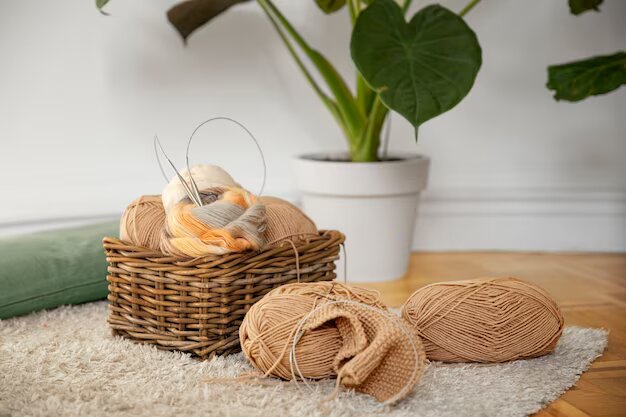Spotlight on Our Eco-Friendly Fibers: From Organic Cotton to Hemp

Understanding Organic Cotton
When it comes to sustainable fashion, the use of eco-friendly fibers is of paramount importance. In this blog post, we will delve into the world of organic cotton and hemp fibers, exploring their numerous benefits and wide-ranging applications. By understanding the environmental advantages and social impacts of these fibers, we can make informed choices that support a greener and more ethical fashion industry.
Organic cotton is a remarkable fiber that offers both environmental and social advantages. Let’s take a closer look at its definition, characteristics, and diverse applications
Definition and Characteristics of Organic Cotton

Organic cotton is cultivated using sustainable farming practices that eliminate the use of harmful pesticides and fertilizers. Its production follows strict guidelines set by organic certification bodies. This fiber boasts several key characteristics:
Reduced water consumption: Organic cotton cultivation requires less water compared to conventional cotton, making it a more sustainable choice.
Elimination of harmful pesticides and fertilizers: By avoiding the use of toxic chemicals, organic cotton protects the environment and the health of farmers and workers.
Preservation of biodiversity: Organic farming methods support the preservation of biodiversity by promoting healthier ecosystems and reducing the risk of soil degradation.
Environmental and Social Benefits of Organic Cotton Production

Aside from its positive environmental impact, organic cotton also brings several social benefits to the communities involved in its production:
Improved working conditions for farmers and laborers: Organic cotton farming emphasizes fair wages, safe working conditions, and access to healthcare and education for those involved in the supply chain.
Support for fair trade practices: By choosing products made from organic cotton, consumers can contribute to fair trade initiatives and help promote a more equitable global economy.
Clothing and textiles: Hemp fibers can be used to create durable and breathable fabrics, suitable for a variety of clothing items such as shirts, pants, and outerwear.
Industrial products: The versatility of hemp fibers extends to industrial applications. They can be utilized in the production of automotive parts, construction materials, and more.
Applications of Organic Cotton in the Fashion and Textile Industry

The versatility of organic cotton makes it a popular choice in various sectors of the fashion and textile industry:
Clothing and apparel: Organic cotton is used to create a wide range of garments, from t-shirts and jeans to dresses and activewear. Its softness and breathability make it a comfortable choice for clothing.
Bedding and home textiles: Organic cotton is also widely used in the production of bedding, towels, and other home textiles, providing a natural and hypoallergenic option for a sustainable bedroom or bathroom.
Accessories and bags: Organic cotton fibers are utilized in the creation of accessories such as hats, scarves, and bags, offering eco-conscious alternatives to conventional materials.
Exploring the Versatility of Hemp Fibers

Hemp fibers are another eco-friendly option that offers a multitude of benefits, from its sustainable cultivation practices to its versatile applications
Overview of Hemp as a Sustainable Fibe : Hemp is a fast-growing crop that requires minimal inputs and naturally resists pests and diseases. This makes it an ideal choice for sustainable fiber production. Some key advantages of hemp fibers include:
Fast-growing and low-input crop: Hemp grows rapidly, reaching maturity in a relatively short period. It requires fewer pesticides, fertilizers, and water compared to other crops.
Natural resistance to pests and diseases: Hemp’s natural resilience reduces the need for chemical interventions, making it a sustainable and environmentally friendly choice.
A Comparison of Organic Cotton and Hemp Fibers

Both organic cotton and hemp fibers have their unique characteristics and benefits. Let’s compare them based on several factors: Sustainability factors: We’ll examine water usage, land requirements, and environmental impact to assess the sustainability of each fiber.
Strength, durability, and comfort considerations: Understanding the physical properties of organic cotton and hemp fibers will help determine their suitability for different applications.
Suitability for different climates and seasons: We’ll explore how these fibers perform in various weather conditions and whether they are suitable for different regions.
Cost and availability in the market: An analysis of the cost and availability of organic cotton and hemp fibers will aid consumers in making informed purchasing decisions.
organic cotton and hemp fibers are excellent choices for those seeking eco-friendly alternatives in the fashion and textile industry. By opting for products made from these fibers, we can contribute to a more sustainable and responsible future. Let’s make conscious decisions that support sustainable fashion and help create a better world for generations to come
